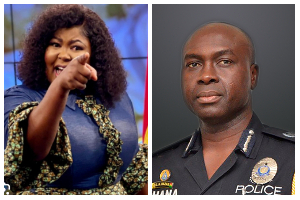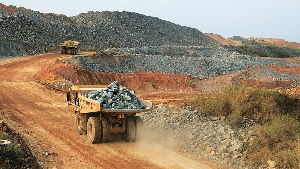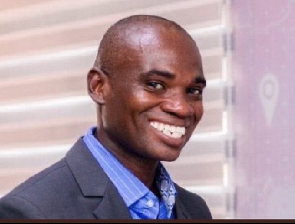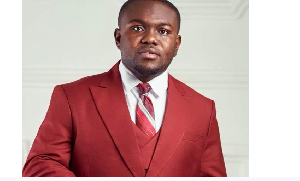In May 2013, I was among the privileged few who witnessed the Africa @ 50 celebrations in Addis Ababa. I am forever grateful to have being given this opportunity to be physically part of this historic occasion and most lucky to have done that as technical assistant to Dr. Carlos Lopes, Executive Secretary of UNECA.
One of the key deliverables that came out of the AU Summit that year was support for Agenda 2063, a forward-looking strategy document aimed at transforming Africa into ‘an integrated, prosperous and peaceful Africa driven by its own citizens and representing a dynamic force in international arena’.
Agenda 2063 brings together all the many documents that the African Union has subscribed to but most importantly, Agenda 2063 comes with seven key aspirations that seek to capture the Africa we want in the next 50 years.
In between the whirlwind of organising events, meeting Heads of States, finalising speeches, attending conferences, writing press statements and the many other last minute issues that come up on such a high-level event, I never forgot the significance of the occasion.
I never, not for a moment, forgot that it was the sweat, blood and tears of my recent ancestors that made it possible for me to walk through the majestic halls of the African Union building.
I never, for a minute forgot the blood, dignity and identity that my forefathers and foremothers sacrificed to ensure that their dream of ‘the total liberation of Africa’ was achieved. I felt the weight of history lying heavily on my shoulders. If our past leaders were been able to achieve so much in an era of typewriters and fax machines, then we have no excuse not to do much much more for generations yet unborn.
As we celebrate another African Union day this year, permit me to share with you the significance of the AU day to me in my multiple realities. In the same format as the response of an African President was when he was asked whether he had ever taken a bribe.
As a human being:
As a human being living in Africa, I am more prone to die from preventable diseases such as cholera and malaria; it is more probable that I will experience wars and conflicts; I am more likely to live under one dollar a day and for either myself or my children to suffer from malnutrition. I have less access to education, healthcare facilities are far from me or are inadequate and I have a high likelihood of being employed in the informal sector or not employed at all. I will die earlier than my European and American friends and my cause of death is 33per cent more likely to be maternally related.
Quite a sad picture, isn’t it? And I could go on and on. But there is hope. On a positive side, the UNDP’s annual Human Development Report (HDR 2013) shows that all African countries have positively improved in all the categories since 2000 with the largest improvement recorded in health. Africa is doing something to improve my quality of life.
Aspiration 1 of Agenda 2063 states that ‘We are determined to eradicate poverty in one generation and build shared prosperity through a social and economic transformation of the continent’.
In this regard, therefore, I have hope that as a human being living in Africa, poverty will be over in my generation.
As a woman: it is an undisputed fact that women are a critical cornerstone of Africa’s economic development. Statistics show that women provide about 70 percent of agricultural labour and produce about 90 percent of all of Africa’s food. Investing in women can yield a significant boost in economic growth, otherwise known as “the gender dividend.”
Despite these positive statistics, a woman in Africa is more likely to be illiterate or less educated than her brothers, most likely to be married off at an early age, have less access to agricultural extension support and does not own the land she cultivates. Unless this vicious cycle of the underlying causes of poverty is broken with education as an enabler, African women will continue to be relegated to the dark prehistoric ages of witchcraft and sorcery.
Several of the Agenda 2063 aspirations speak to the role of women in achieving the objectives of the agenda. For example, aspiration 6 of Agenda 2063 speaks to ‘An Africa whose development is people-driven, relying on the potential of African people, especially its women and youth, and caring for children’. Also, Aspiration 3 states it in a different way, ‘Africa shall have a universal culture of good governance, democratic values, gender equality, respect for human rights, justice and the rule of law’.
In a previous blog post, I classified three E’s needed for women’s growth and development as Education, Economic stability and Empowerment. These are still relevant today.
As a mother: the numbers of women who still die from preventable pregnancy-related causes in Africa are staggering. Whilst in developing countries, it is rare to know of women who have died as a resulting pregnancy, in Africa this is the norm.
Do you know that every day in 2015, about 830 women died due to complications of pregnancy and childbirth? And that of the 830 daily maternal deaths, 550 occurred in sub-Saharan Africa and 180 in Southern Asia, compared to 5 in developed countries. The risk of a woman in a developing country dying from a maternal-related cause during her lifetime is about 33 times higher compared to a woman living in a developed country.
As a mother, the AU day is significant not only to push forward a focus on tackling maternal mortality but on the future of my children, my nieces and nephews.
Did you know that Africa is the only continent where the youth population will significantly expand and that between 2010 and 2100 the African youth population will almost triple? This means that by 2100 almost half of all the world’s youth, including my children, will be African.
Did you also know that almost one-third of sub-Saharan African youth lacks basic skills and that Sub-Saharan Africa has the lowest secondary and tertiary school enrolment and whatever skill set that they have do not meet the needs of the 21st-century labour market ‘Jobless’ growth?
What does this foretell for the future of Africa’s children (including my children) and the educational systems they are being trained in?
Aspiration 6 focuses on ‘all citizens of Africa will be actively involved in decision making in all aspects. Africa shall be an inclusive continent where no child, woman or man is left behind or excluded, on the basis of gender, political affiliation, religion, ethnic affiliation, locality, age or other factors.
As an African: The rhetoric of a ‘rising Africa’ is all around us. The statistics show that Africa is indeed on the path to economic prosperity. This is great news. Overall, Africa’s economic performance is strong, we are more resilient to shocks and there are key ongoing economic policy changes. In addition to this, we can also applaud the handling of the Ebola virus crisis.
However, the threat of terrorism and religious extremism continue to plague the continent. One case is the point is the Chibok girls. I am saddened whenever the plight of those young women come to mind. My prayers continue to be with them wherever they are and with their families. Boko Haram, ISIS, Al Qaeda continue to brainwash our youth into committing atrocious acts of terrorism.
Yes, democracy is the norm in many African countries but it seems as if our definition of democracy is skewed in favour of life presidents and oppressive regimes.
Aspiration 4 which focuses on peace and security states that ‘Mechanisms for peaceful prevention and resolution of conflicts will be functional at all levels. As a first step, dialogue-centred conflict prevention and resolution will be actively promoted in such a way that by 2020 all guns will be silent. A culture of peace and tolerance shall be nurtured in Africa’s children and youth through peace education’.
There certainly is progress but sometimes, the challenges outweigh the progress. But we must press on, nevertheless. No one will develop our continent for us but ourselves. The reverse is not the case, sadly.
In conclusion
In effect, the celebration of the African union day should not be a mere rhetoric or an excuse for Africans to have a good time. It is to remind us that there is work to be done. It is to spur us to work harder, shout louder, think further and make change happen. If not for us, for our children.
I want to make change happen, so that in the year 2063 when my granddaughter is walking through the halls of the African Union Building, she will be proud of not only her grandmother but all the Africans in this generation who consciously worked for the greater good of all.
The target is clear, the milestones defined, the signs cannot be missed. Agenda 2063 sets the strategic and unifying framework for a socio-economic revolution within our generation. This is not just a dream. It is our reality and that reality must change for the (much) better.
I am Teiko Sabah and I am African. I am the African Union.
Happy African Union Day!!!
Opinions of Wednesday, 25 May 2016
Columnist: Teiko Sabah





![Fatawu Issahaku [L] and Jordan Ayew Fatawu Issahaku [L] and Jordan Ayew](https://cdn.ghanaweb.com/imagelib/pics/718/71828066.295.jpg)









